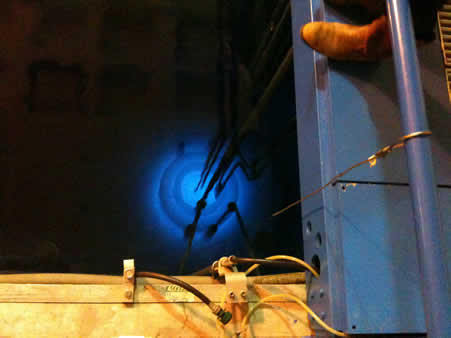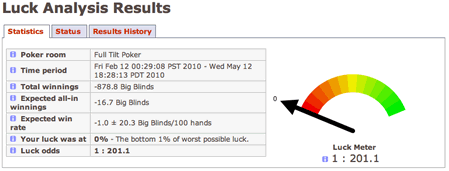From the Fujin, where the Kung Pao Chicken was great this afternoon.
A pleasant surprise is in store for you tonight.
Those who do not learn from history are stupid
From the Fujin, where the Kung Pao Chicken was great this afternoon.
A pleasant surprise is in store for you tonight.
I am a human rocket
On a mission of deployment
I’ve been cocked and loaded
Ready for the culmination
I am a human missile
Guided by a secret agenda that commands my every thought and deed
And wills me on my wayI am a human rocket
On a mission of redemption
I’ve been cocked and loaded, primed by everything I know
I am a human missile
Guided by a secret voice that commands my every action
And wills me on my wayThere is no turning back, there are no second thoughts
First things first and all things fair, be it love or war, they say
There is no plan named B on the land in the air or on the sea
That is what’s supposed to be
My duty now awaits meI am a human rocket
On a mission of instruction
I’ve been primed and programmed since the beginning of time
I am a human missile
Guided by a secret master
That commands my every motion
And wills me on my wayI’ve found my target,
I’ve reached my co-ordinates
I’m set to detonate and resonate
The final poem I will create
I’ve made a video
It tells a story, oh….
I guess it’s time to go
Don’t forget to rewind!I am a human rocket
On a mission of destruction
I’ve been locked and loaded
And ready for the confirmation
I am a human missile
Guided by a secret perfection that commands my full conviction
And wills me on my wayLarge parts of the experience will go by unnoticed
We are all distracted by the lights and sounds of everything and nothing
Did you remember the breath you took when I let you off the hook?
And sent you swimming away back into your cell?I am a human rocket
On a mission of reduction
I’ve been cocked and loaded
Since the dawn of time
I am a human missile
Guided by a secret voice that commands my every thought and deed
And wills me on my righteous way—Devo, “Human Rocket”, Something for Everybody
Food 4 Less still has the durian fruit in their produce section. While Barbara and I were shopping there today I noticed another less exotic though still amusing import.
When we were in Mexico a couple of years back, I saw the Bimbo bakeries logo everywhere on signs, trucks, and shops. We got a bit of a chuckle remembering Barbara’s research a couple decades back to demolish an opposing attorney’s argument claiming that “bimbo” wasn’t really a derogatory term. I guess it’s a good thing he hadn’t spent much time in Spain or Mexico or he’d have claimed it just meant “bread”.
We wondered at the time how the brand would fare in the US, little knowing that Bimbo was already the corporate owner of well-known US brands like Orowheat, Entenmann’s, and Boboli. And now you can get your Bimbo bread here in Portland.
Last week was the first time I’d ever hosted the bi-weekly poker game that I’ve been playing in for a couple of years, so I had to set everything up to make sure that at least one table could be shoehorned into the space I was planning to use. As you can see, our living room doesn’t have the typical poker mancave ambience of someone’s basement/garage/unused bedroom.
The “Catsino” is not only bright and airy, but it’s got a couch, a loveseat, and a cushy chair like “The Grand” room at the Golden Nugget Casino where Poker After Dark is filmed (although there’s a bit less clearance between the back of the player’s chairs and the cushions). The stuff on top of the TV includes the Ganesh statue I bought for our nineteenth anniversary.
You can probably guess from the fact that I took a picture I was pretty pleased with the setup. I arranged 20 buy-ins and add-ons worth of chips and a bunch of extras on the table, put an ace of diamonds and four of clubs on the table to honor Tomer Berda’s World Series of Poker bracelet win (using one of the “official” WSOP decks I bought in Vegas when I flew down to have lunch with him, and which are not standard-size poker cards), and fortuitously found a clip from Poker After Dark to put on the TV showing Phil Ivey about to lose a bunch of money with a set of fours to David “Viffer” Peat who’s drawn a flush with my favorite hand: a suited ace and jack.

I have to say, I was quite pleased with how this shot came about, as well as how it looks. I was flying south out of Portland on Friday morning and about twenty minutes into the flight I had a great view of a snow-capped mountain outside my window. Like the TSA-obedient traveler that I am, however, I had “turned off, not just placed in airplane mode” all of my electronic devices, and that view was rapidly sliding away as I waited for my iPhone to start up. I got off a couple of quick shots of the mountain almost broadside, then sort of leaned forward to shoot back and get one last shot as we passed. I managed to get South Sister (in the foreground), with the peaks of the shorter Middle and North Sisters just poking through the clouds breaking over the Cascades, Mt. Jefferson in mid-range, and Mt. Hood just visible on the horizon.

As always, a few words from my cousin Roxana about our grandmother, who was murdered nine years ago today:
I have spent many years in a volunteer capacity working against domestic violence, so I was shocked when my grandmother was shot and killed June 11 in the White Salmon area. My grandmother was bedridden, blind, and has suffered many strokes over the years. I did not expect her to die in this manner.
She died because her caregiver, Toni Stencil, was the target of an angry man.
There is not room to write all the details Toni has given me, and Toni has her own story to tell. I am not a legal expert, or an expert in domestic violence. I am simply a granddaughter asking questions and looking for answers on why my grandmother had to die so violently.
Through my questions, I have found out that the state of Washington has a Mandatory Arrest Law, as does Wisconsin, where I now live. This law does vary from state to state, and I’m not clear on the stipulations in your law. What I have been told by Toni is that she called 9-1-1 on the Thursday evening prior to the (Monday) shooting because this man had bound her and held her against her will for over three hours. She talked her way out of this dangerous situation and did call 9-1-1.
I wonder why he was not arrested on that evening. Certainly this will be determined, and police in White Salmon have declined to answer my questions concerning this issue at present.
Why should you care about this law? Remember that my grandmother was an innocent victim of a dispute between two people that she had absolutely nothing to do with. This was a dangerous man. Are the laws you have in place working for you? If not, why?
These are the questions running through my head that keep me up at night. There is another state law that interests me as well that I’m checking into concerning self-help information that is to be given to victims of domestic 9-1-1 calls. Three days passed between Toni’s initial call for help and the shooting; she needed professional help. I have found out that you have the Programs For Peaceful Living. This program could have offered Toni some very needed support in a number of ways.
I pose these questions and tell this story because it is my way of helping and healing. On my own, I cannot look into your laws and check into the rapport between your police force and your programs in place to help people. You need to be concerned because you care about the health of your community. I believe domestic violence issues are so important, because the health of a whole community starts in the home.
Please support your local law enforcement and program such as Programs For Peaceful Living in working together against domestic violence.

I always thought that the words “licensed nuclear reactor operator” would be a neat addition to the baccalaureate in English Literature, but not surprisingly, the training program to operate the reactor at Reed College is no cakewalk. So I never even went into the reactor when I was a student, despite having taken an after-school class in third grade taught by a retired Civil Defense chief who taught us to use Geiger counters and calculate the biological effects of our long-term radiation exposure in a nuclear holocaust. But they were giving tours during last weekend’s reunion activities and I got the shot of Cherenkov radiation above with my iPhone, standing practically over the reactor.
Hee Haw! It’s official! I have the worst luck!

According to their analysis of 1,600+ Texas Hold-‘Em hands I played in both tournament and ring games at Full Tilt Poker over a period of three months, Poker Luck Meter says that my luck was at “0% – The bottom 1% of worst possible luck.” The kind of luck where, despite the fact that I got back-to-back four-of-a-kind hands the other night, I still lost the tournament. So I guess it’s fortunate that I haven’t had the kind of bankroll that might lead one to become a professional poker player — I’d only last about ten minutes, according to this.
I have not yet found a tool to analyze the rest of my life.
From the Fujin yesterday:
A small lucky package is on its way to you soon.
Did you say a lucky package? These are always welcome.
Vijay Balse, the leader of the first of two games in the final round of Jeopardy!‘s 2010 Tournament of Champions last night said in his mini-interview with Alex Trebeck last night that it took him six tryouts over a period of sixteen years to finally get picked to compete. So far I’ve only tried out four times including my first attempt about this time of the year in 1996 while I was in Los Angeles visiting my brother and proofing the first (and only) edition of my book on Shockwave, so perhaps there’s still time.
Last week I got an email from Ken Jennings — the winningist person in Jeopardy! history — in response to something I’d sent him. That’s gotta be a good omen, right? I mean, if you’re inclined to believe in omens.